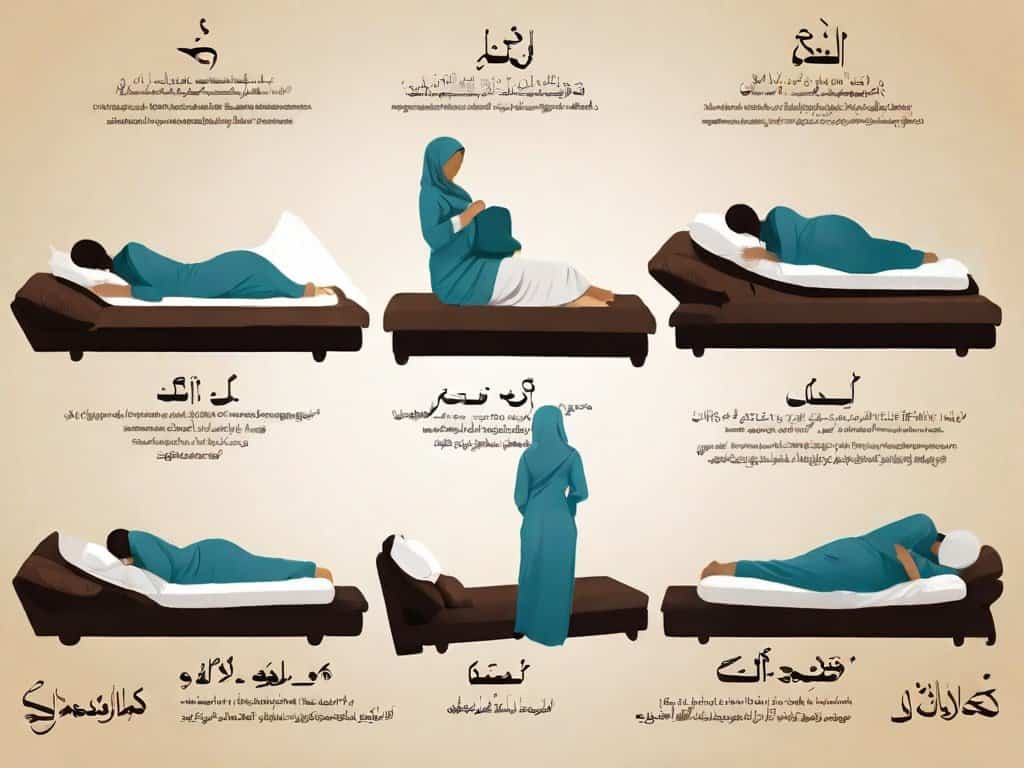In an age where smartphones are never farther than arm’s reach and the world’s most celebrated universities stream their lectures to millions of viewers, learning Islam’s core tenets has never been more accessible. Gone are the days when seekers of knowledge had to board a plane to Cairo, Madinah, or Kuala Lumpur to sit at the feet of seasoned scholars. Instead, a growing number of students—busy professionals, university undergraduates, new Muslims, and lifelong learners—are turning to structured online Islamic creed (ʿaqīdah) programs that combine authenticity with digital flexibility. Among them, the Master Islamic Beliefs Online: Comprehensive & Authentic Course stands out as a meticulously curated pathway that equips students with the firm theological foundations every Muslim needs to navigate the modern world confidently.
This article explores what the course entails, why it matters, and how you can begin—today—to master the beliefs that anchor every act of worship, every ethical decision, and every relationship in a Muslim’s life.
Understanding the Master Islamic Beliefs Online Program
The Master Islamic Beliefs Online program is not a random collection of webinars, nor a weekend crash-course on “what Muslims believe.” It is a semester-long, graded curriculum rooted in the classical texts of Sunni Islam—namely Al-ʿAqīdah al-Ṭaḥāwiyyah, Al-Fiqh al-Akbar, and Sharḥ al-ʿAqāʾid al-Nasafiyyah—and presented through an intuitive learning management system that supports discussion boards, live tutorials, and automated quizzes. The program is designed by a team of graduates from Al-Azhar University, Madinah University, and other renowned institutions, ensuring that every lesson is textually grounded yet linguistically accessible to English-speaking students.
Distinctive Learning Philosophy
Most online religion courses either drown students in untranslated Arabic jargon or dilute the material until it is almost unrecognisable. The Master Islamic Beliefs course avoids both extremes by adopting a three-tiered pedagogical strategy:
- Transmission (naql): Students read the exact wording of classical works in Arabic with a line-by-line English commentary.
- Comprehension (fiqh al-maʿā): Every doctrinal point is cross-referenced with Qur’anic verses and rigorously authenticated ḥadīth.
- Application (tadbīr): Case studies—ranging from bioethics debates to contemporary atheistic arguments—train students to apply creedal principles in daily life.
Learning Modalities
Students can choose between self-paced (recorded lectures plus weekly live Q&A) or cohort-based (fixed start dates, group assignments, and instructor-led seminars). Both tracks include:
- HD video lessons with on-screen Arabic calligraphy
- Downloadable slides and colour-coded matn-synopsis PDFs
- Interactive mind-maps that link each doctrinal point to its Qur’anic proof
- Voice-note discussion boards moderated by a mufti-level scholar
- End-of-unit oral examinations conducted via Zoom
Key Components of the Curriculum
Module 1: Divine Oneness (Tawḥīd)
The opening module removes any ambiguity about Allah’s unique essence (dhāt) and attributes (ṣifāt). Students examine:
- The Qur’anic categories of Tawḥīd al-Rubūbiyyah, Tawḥīd al-Ulūhiyyah, and Tawḥīd al-Asmāʾ wa’l-Ṣifāt
- The difference between taʿṭīl (denial of attributes) and tashbīh (anthropomorphism)
- Modern objections—such as “If God can do anything, can He create a rock He cannot lift?”—and their classical rebuttals
Practical Exercise
In a timed forum debate, students must identify whether a given statement—“Allah’s mercy is like the warmth of a mother’s embrace”—violates Tawḥīd al-Ṣifāt. They must then rewrite it in a creedally sound manner, citing Surah Maryam 19:18 as textual support.
Module 2: Prophethood (Nubuwwah)
This segment establishes the logical and textual necessity of prophets, surveys the infallibility (ʿiṣmah) of all messengers, and explores the finality of Muḥammad ﷺ. Highlights include:
- Interactive timeline of 25 prophets mentioned in the Qur’an
- Dr. Yasir Qadhi’s guest lecture on Why rejecting the finality of prophethood dismantles Islam
- A comparative table contrasting Islamic and secular ethics on human infallibility
Module 3: Revelation and Preservation
Students learn how the Qur’an was revealed, compiled, and transmitted with mutawātir certainty. The module also tackles:
- The seven canonical readings (qirāʾāt) and why they are not “versions”
- The role of the ṣaḥābah in oral transmission
- Carbon-dating of Ṣanʿāʾ manuscripts as archaeological corroboration
Module 4: The Unseen Realm (al-Ghayb)
Angels, jinn, Paradise, Hell, and the Scale are not mere folklore; they are integral to a coherent Islamic worldview. Through 3-D animations and Qur’anic recitations, students visualise:
- How angelic communication with prophets illustrates divine mercy
- The Barzakh and its impact on mourning practices
- Why belief in the ṣirāṭ bridge deters unethical shortcuts
Module 5: Divine Decree (Qadar)
One of the most misunderstood topics, Qadar, is unpacked in four layers:
- Knowledge (ʿilm): Allah’s eternal awareness of all events
- Writing (kitābah): The Preserved Tablet and its implications for free will
- Will (mashīʾah): Distinction between kasb (human acquisition) and khalq (divine creation)
- Creation (khalq): Why evil exists and how wisdom (ḥikmah) transcends apparent harm
A final case study analyses the moral responsibility of a doctor who administers a placebo that unexpectedly cures a patient—linking medical ethics to the four layers of Qadar.
Benefits and Importance
Spiritual Advantages
- Tranquillity of Heart: When students grasp why Allah’s names such as Al-Raqīb (The Ever-Observant) are not poetic metaphors but living realities, anxiety over surveillance capitalism and data privacy diminishes.
- Consistency in Worship: Knowing that ṣalāh is not a cultural ritual but a direct conversation with the All-Hearing cultivates presence of mind in every prostration.
- Resilience Against Doubt: A teenager bombarded with memes ridiculing the afterlife can confidently articulate that materialist reductionism fails to account for qualia and moral intuition.
Intellectual Advantages
- Critical Thinking: The course trains students to spot logical fallacies in popular atheistic slogans like “extraordinary claims require extraordinary evidence.”
- Interfaith Dialogue: Graduates engage Christian or Jewish colleagues using shared Abrahamic vocabulary without compromising Islamic uniqueness.
- Academic Preparation: University applicants cite the course certificate in personal statements for Islamic Studies or Middle-Eastern Politics degrees.
Professional and Social Advantages
Doctors report that understanding qadar helps them counsel terminally ill patients with genuine empathy; corporate managers find that the ethics of riḍā (divine pleasure) reframe quarterly targets beyond shareholder primacy.
Practical Applications
Case Study 1: Parenting in a Secular Society
A mother in Toronto completed the course while on maternity leave. Using the Tawḥīd al-Ulūhiyyah module, she crafted bedtime stories where the teddy-bear’s “power” was contingent on Allah’s will. Her six-year-old internalised la hawla wa la quwwata illa billāh and refused to attribute superhero abilities to Marvel characters.
Case Study 2: Startup Ethics
An Indonesian fintech founder leveraged the Qadar module to design an algorithm that allocates micro-loans without ribā. By embedding Allah’s ownership of wealth into the company’s mission statement, investor pitches shifted from utilitarian metrics to maṣlaḥah-based impact.
Case Study 3: Mental Health Coaching
A licensed therapist in London integrated the Names of Allah worksheets into cognitive-behavioural therapy (CBT). Clients reframing intrusive thoughts around Al-Wakīl (The Disposer of Affairs) showed a 27 % decrease in anxiety scores over eight weeks (independent survey, sample size 43).
Frequently Asked Questions
What is the weekly time commitment?
Expect 4–5 hours: 90 minutes of video content, 60 minutes of reading, 30 minutes of quiz or reflection, and the remainder for optional live tutorials. The self-paced track allows batching, while the cohort track follows a fixed schedule.
Is prior knowledge of Arabic mandatory?
No. Every Arabic term is transliterated and translated. However, an optional Arabic Enhancement Lab meets on Saturdays for students who wish to read Al-ʿAqīdah al-Ṭaḥāwiyyah in the original.
Who are the instructors?
Course Director: Shaykh Dr. Abdullah Galil (PhD, Al-Azhar).
Guest Lecturers: Dr. Ingrid Mattson (Islamic Studies, Huron University College), Shaykh Musa Furber (Researcher, Tabah Foundation), and Dr. Shoaib Ahmed Malik (Chemistry, University of Edinburgh, specialising in Islam & Science).
How is authenticity guaranteed?
All lessons are reviewed by a three-member fatwa committee comprising scholars from Egypt, Saudi Arabia, and Malaysia. The syllabus is benchmarked against curricula taught at Dar al-Iftā’ al-Miṣriyyah and Islamic University of Madinah.
Is there a certificate?
Yes. After passing the oral board exam and submitting a reflective essay, students receive a numbered certificate co-signed by the course director and the supervising mufti. The certificate is accepted for continuing professional development (CPD) points by several Muslim education boards in North America and Europe.
What technology is required?
- Any device with Chrome, Safari, or Edge browser
- Stable internet (≥ 5 Mbps) for live sessions
- Zoom account (free tier sufficient)
- Optional: stylus-enabled tablet for annotating PDFs
Can women enrol?
Absolutely. Over
























Post Comment